
As you know, I like to post about artists on their birthdays, but the birthdays are not known for every artist. Such is the case with Kitagawa Utamara who was born sometime in 1753 and was one of the most highly-regarded designers of the ukiyo-e woodblock prints and paintings. He produced a wide variety of prints but is best know for his portraits of beautiful women and in particular the courtesans of the Yoshiwara District of what is now Tokyo.
He also produced a wide variety of nature studies and books of insects as well as historical subjects and erotica. He is one of the few ukiyo-e artists to attain fame throughout Japan in his lifetime.
In 1804 he was arrested and manacled for fifty days for making illegal prints depicting the 16th century military ruler Toyotomi Hideyoshi.

Much of his work was around courtesans or Geishas. One of his more popular series depicted the 12 hours of the day for the Geishas.
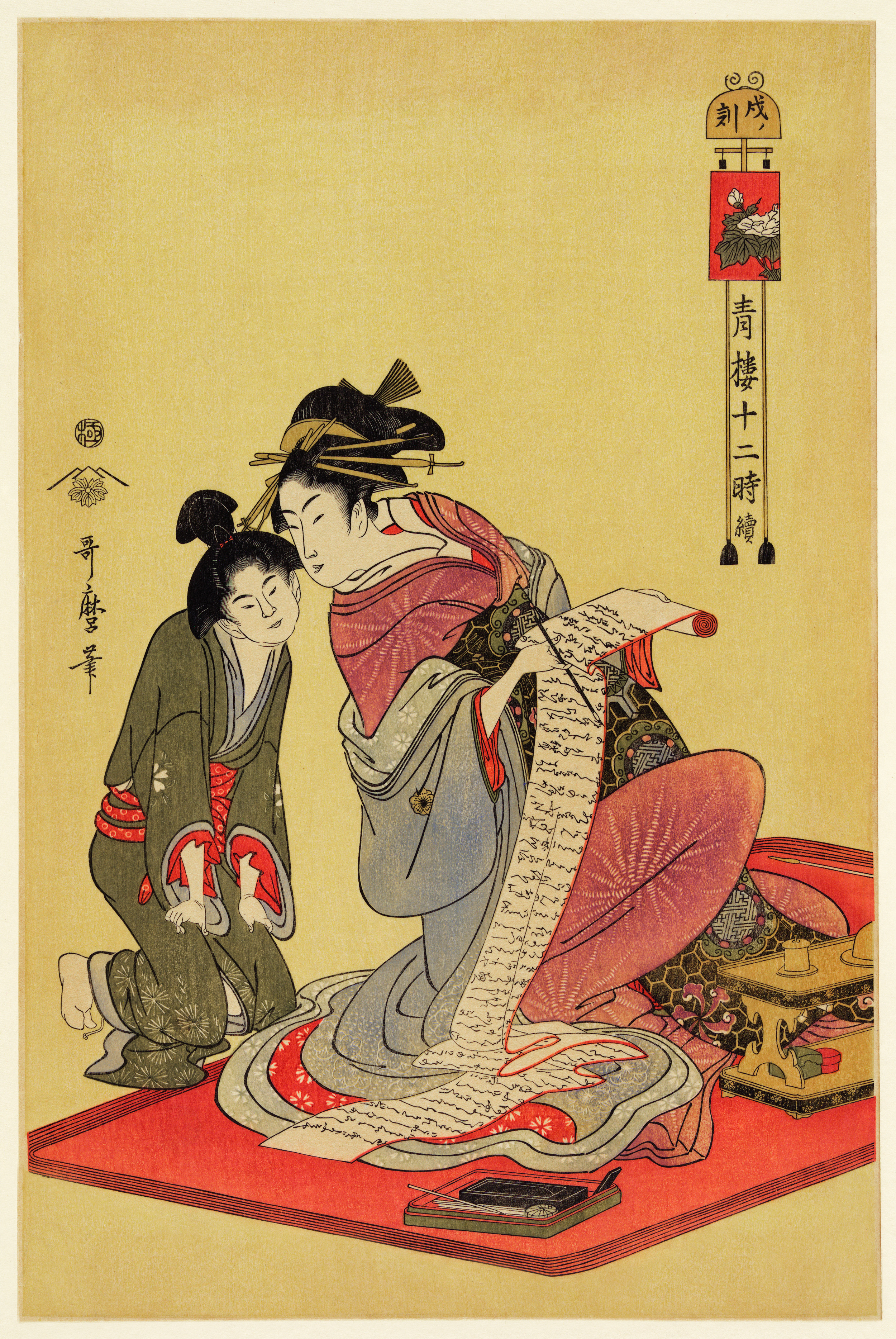
(A courtesan sits on a scarlet felt rug at about 8 in the evening. She bends back to speak to a young servant while she writes to a patron. Before her is a tobacco tray decorated with lacquer.)
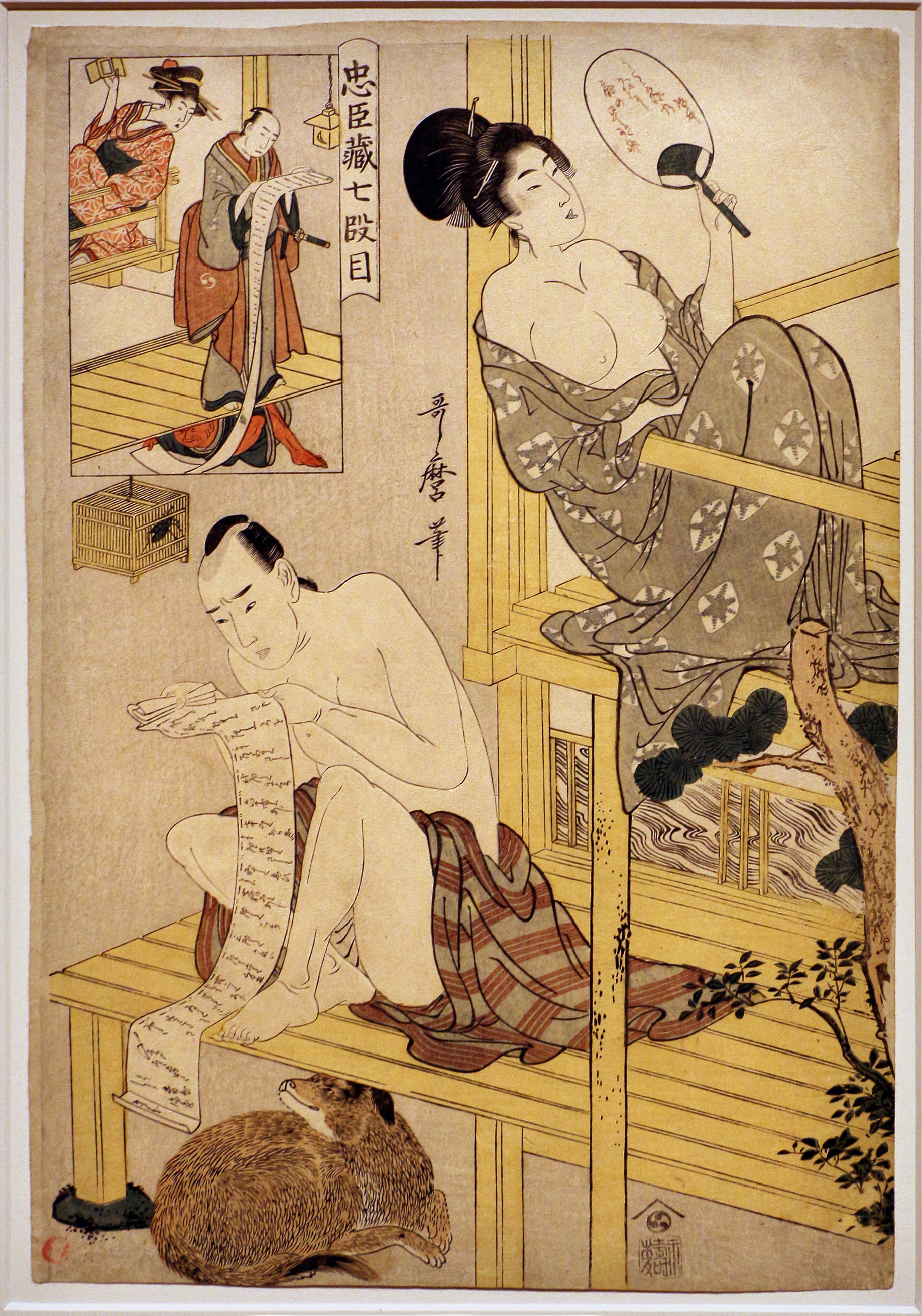
Later in his career he began elongating the head and necks of his subjects in his prints in a very distinctive style.
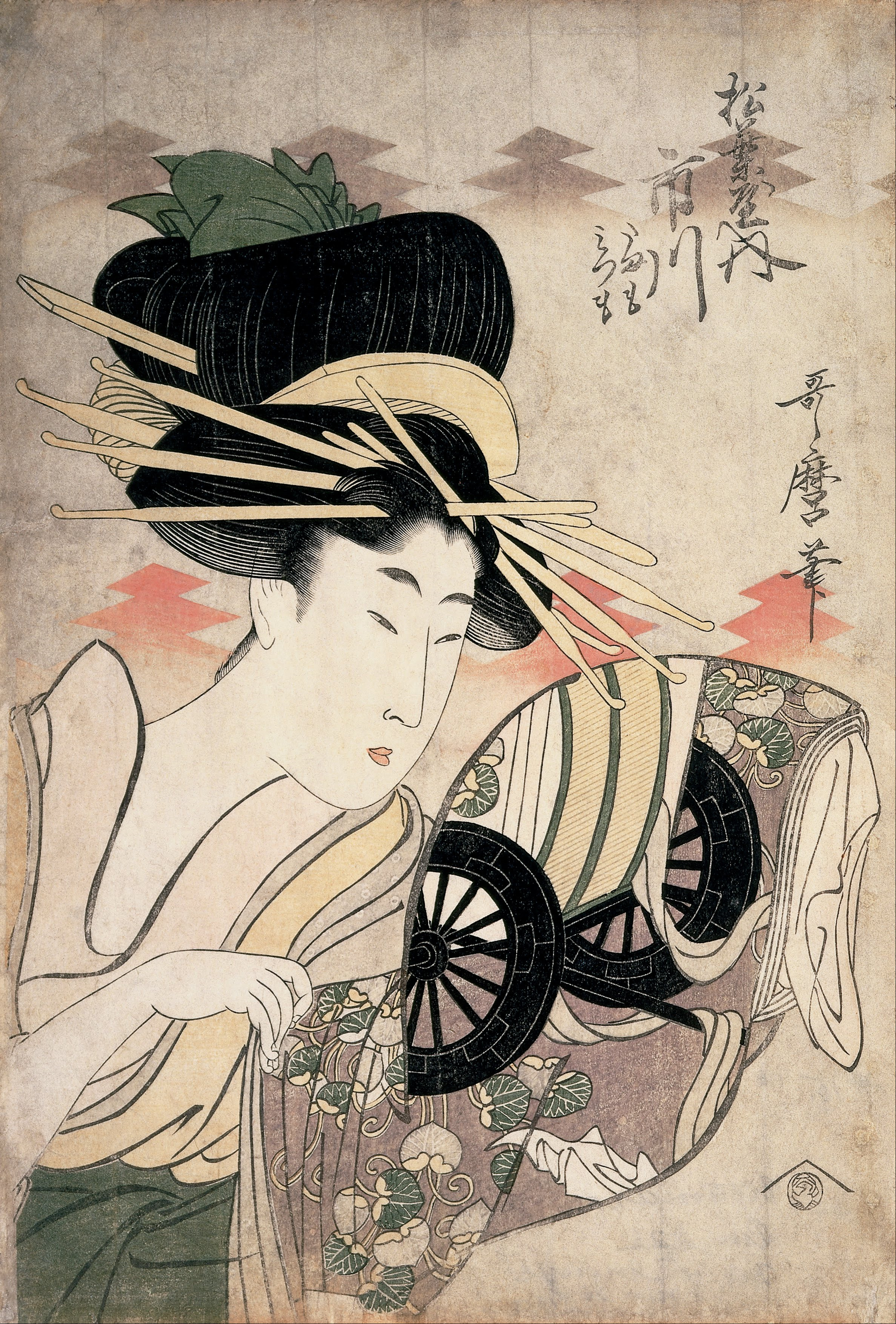
One of the things that really interests me about Utamaro is the influence that he and others of his period had on the French Impressionist movement. ‘Japonisme’ is the term used for the popularity and influence of Japanese design on the art and architecture in Western Europe following the forced reopening of trade with Japan in 1858. Here are some examples:

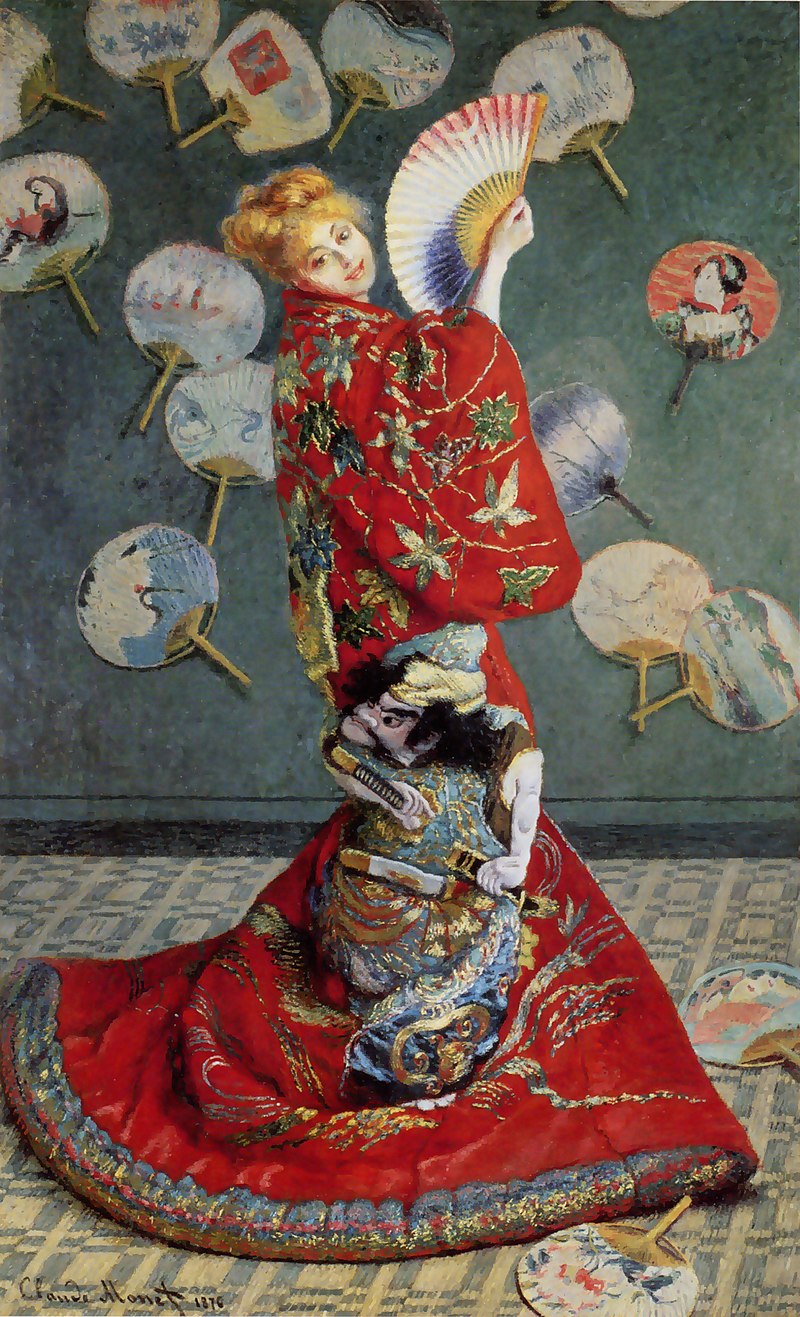

Japanese gardens also became popular. Claude Monet modeled part of his garden after Japanese elements such as the bridge over the lily pond which he painted numerous times. In his ‘Water Lilies’ series, by detailing just on a few select points such as the bridge or the lilies, he was influenced by traditional Japanese visual methods found in ukiyo-e prints.

Utamaro also did a few paintings. This is one of his earlier paintings and is in the Freer Gallery of Art in Washington.
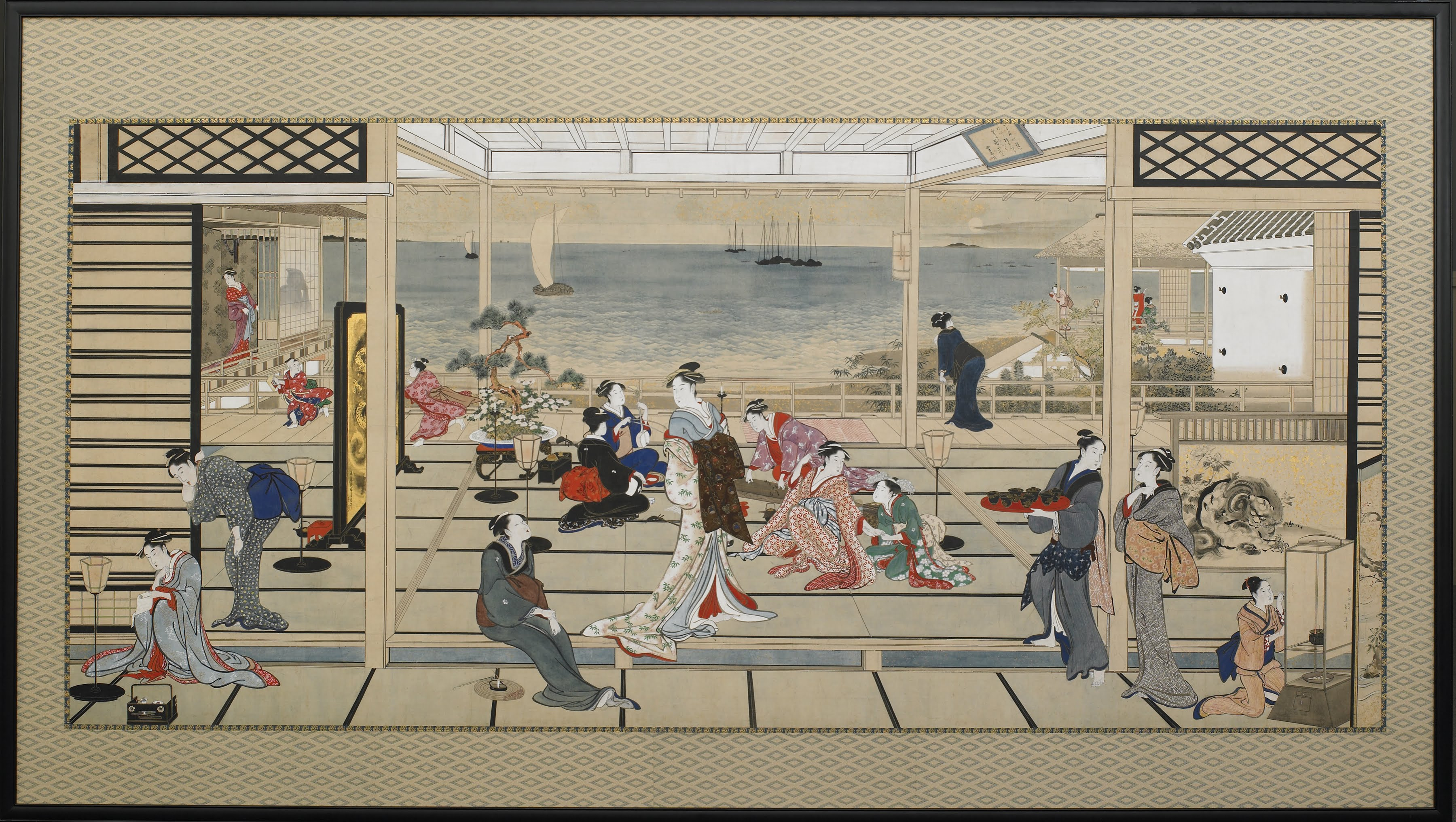
Utamaro made more than 2000 works of art. If you want to see more you, the Sackler Gallery in Washington has some. There are also lots of images in Wikimedia HERE.
Comments